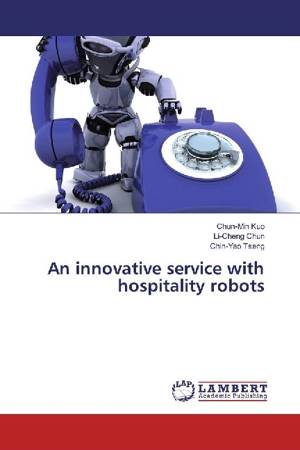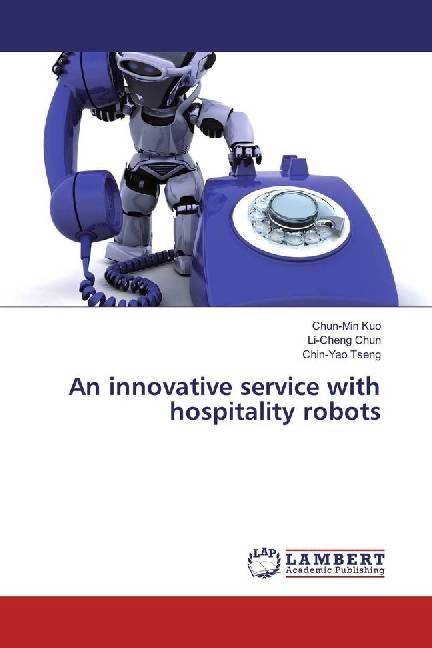
- Afhalen na 1 uur in een winkel met voorraad
- Gratis thuislevering in België vanaf € 30
- Ruim aanbod met 7 miljoen producten
- Afhalen na 1 uur in een winkel met voorraad
- Gratis thuislevering in België vanaf € 30
- Ruim aanbod met 7 miljoen producten
Zoeken
An innovative service with hospitality robots
Chun-Min Kuo, Li-Cheng Chun, Chin-Yao Tseng
Paperback | Engels
€ 35,45
+ 70 punten
Omschrijving
The growth in tourism has led to a rapid expansion of the local hotel industry, which is searching for innovative new sources of competitive advantage. A comprehensive business strategy to support competitive advantage is sustainable formulated across a range of knowledge domains, including marketing, operation process, supply chain, finance, human resource, and information technology. The paper begins by describing innovative services with robots in the hospitality industry and the evolution of hospitality service robots. It then describes the mixed-methods approach used in this study which involves an expert panel and semi-structured interviews with a qualitative method and a ranking survey with a quantitative method. The results are analyzed using the SMART SWOT ranking technique. Few studies have investigated robotics service for hotels using the six-dimensional service innovation model. This model helps identify six factors and implies that this new service concept can position hotels to better compete by using IT and relationship marketing strategies.
Specificaties
Betrokkenen
- Auteur(s):
- Uitgeverij:
Inhoud
- Aantal bladzijden:
- 52
- Taal:
- Engels
Eigenschappen
- Productcode (EAN):
- 9783659856532
- Uitvoering:
- Paperback
- Afmetingen:
- 150 mm x 220 mm

Alleen bij Standaard Boekhandel
+ 70 punten op je klantenkaart van Standaard Boekhandel
Beoordelingen
We publiceren alleen reviews die voldoen aan de voorwaarden voor reviews. Bekijk onze voorwaarden voor reviews.











